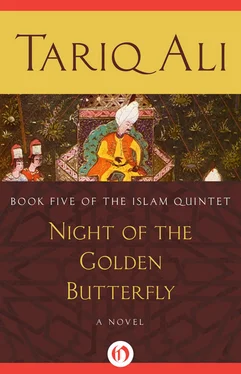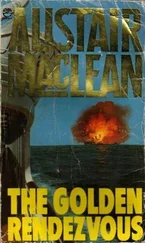Before I let him open his case I said, Malik, if they’re money-makers, let’s not waste time. He cursed me and insisted they were good and wanted me to see one in particular. I agreed, looked at it. Really bad. Purely decorative and would probably grace some wall in a vulgar mansion in Defence. He looked at me. I smiled weakly. He said, ‘I know you think it’s ridiculous.’ He waited for my response. I managed another weak smile. ‘You don’t like it?’ Finally I said, ‘No. It’s a very bad painting.’ He got angry. ‘The trouble with you is that you enjoy being out of harmony with the times.’
I replied: ‘An artist should never be in harmony with the times even if they accord with his beliefs. An artist must always look ahead, live on the edge. Otherwise art would become predictable.’
‘You think all my paintings are bad?’
‘No. Some of the earlier ones were good. Very good.’
‘You’ve always spoken the truth. Like a true friend.’ I did not say anything, which was a mistake because it encouraged him.
‘My last painting sold for fifty thousand dollars in Miami. I am a painter in residence in different countries each year. I’ve won six prizes. My new work is not as bad as you think.’
I smiled weakly.
This was the inner core of Plato, and the memory moistened my eyes. I remembered his weak smile well. He hated pretentiousness in any form. Even at our table in the college café in Lahore all those years ago, if anybody started quoting couplets from the poets to emphasize a point, a habit common to many in that city, Plato would smile weakly, wait till they’d finished, and his sarcastic one-liner would follow. Why did he have to die? Zaynab came and sat on my lap. She was missing him too.
‘Don’t go back just yet,’ I pleaded as I stroked her face. ‘Fatherland is at its most dangerous at the moment. Incessant troubles and unparalleled violence, and your brother is a senior government minister.’
She promised to think about it, but I knew she wanted to leave Paris for a while without moving to London. I was beginning to understand her changes of mood and her capriciousness. She was feeling restless. Where did she want to go? She didn’t know, but I could decide. Did she like the sea? Only if it was wild. Not to swim in but just to walk along the beach watching the fury of the waves. I explained gently that this would be torture for me. To be near a sea one cannot enter is like being married to the Koran. She laughed, signalling a change of mood.
‘OK. A sea you can swim in and I can watch.’
‘Zaynab, can you swim?’
Her face disappeared behind her hands.
‘You can learn.’
‘Too late.’
‘We’re going where there’s a teaching pool and the sea. I’ll teach you and it won’t take long. It would be one thing if the Koran fell in the water, but if I got cramps I’d need you to swim.’
A week before we were to leave for Greece, there was an agitated phone call from Henri.
‘Switch on the news. I’m on my way.’
Naughty was dead. Her face was being displayed on every channel. She had disappeared from home two days ago. Her former husband and sons had alerted the police, since her passport and belongings had been left at home. The boys, both in their late teens, beardless and wearing T-shirts and denims, were shown weeping copiously. Their father, in uniform, looked drawn and stressed. Her body had been found that day, hacked to pieces and stored in a sack. The police chief told reporters that the killers were probably surprised at their work, or they would have burned the body.
Tears poured down Zaynab’s cheeks as she watched the news footage. Yet another medieval episode in Fatherland, but this was not a religious murder. That much was obvious to anyone who knew the place. Had it been carried out by a hard-core Islamist network they would have filmed the murder and distributed the video as a warning to others who might be tempted down the same path as poor Naughty. Henri arrived and was clearly agitated. For him the real killers were those who had recruited her to their cause, but before he could expand on this, Zaynab interrupted him. ‘Henri, I know the country well. This is not a political murder carried out by religious fanatics. It feels like something else, I don’t know what, but they will find out. With three generals in the picture as her lovers, military intelligence will want answers.’
Henri was now convinced that Zaynab’s interview with Naughty should be published on its own, with the voice tapes made available to the media. The global networks had been giving the story of her murder massive coverage, strongly hinting that it was a punishment killing by some terrorist group angered by the success of her book in the West. Colonel Lateef, her former husband, had adopted this refrain on every news channel. The boys, unabashed at meeting the gaze of so many curious journalists, told Fatherlandi television that if the police were unable to track the killers, they, as her sons, would avenge their mother’s death. Nobody thought it fitting to inquire what exactly they meant. Meanwhile posters of the martyred Madame Auratpasand appeared on billboards in every European capital, and T-shirts with her image made an appearance in the duty-free shops at Fatherlandi airports. All that was missing was Detectives without Borders to enter the country and nail the killers.
While this tsunami of emotion and hysteria was drowning other stories in the mediasphere, Editions Montmorency, in a sharply worded press release, announced the Auratpasand interview book. This unleashed a new barrage of interest, but Henri was not prepared to sell serialization rights even though the offers came in millions. He was an old-fashioned publisher and wanted the book to be the only point of reference. The market vindicated his decision. Advance orders in France reached the hundred thousand mark.
In the face of all this, the police chief in Isloo maintained a calm dignity, and the immobility of his facial expression became the subject of bitter comment in much of the global media. Given such a fearful tragedy, how come the chief investigator showed no emotion? Were Fatherland’s police indifferent to the crime?
Then, exactly two weeks after the outrage, the unjustly traduced Isloo police called a press conference at 8.30 am that was relayed live on local networks and fed directly to Al Jazeera, CNN and BBC World. There was a stunned silence when the much-maligned policeman, in a calm and still emotionless voice, began to speak.
‘Ladies and gentlemen. Early this morning we made three arrests. Colonel Lateef and his two sons, Ahmed Lateef and Asif Lateef, have been charged with first-degree murder and are in police custody. The Fatherland Army has authorized me to say that Colonel Lateef has been stripped of his rank and cashiered. He is no longer regarded as a serving officer and can be tried as a civilian. I have nothing more to add at this stage.’
Since there was worldwide interest in the affair, the impeccable behaviour of the Isloo police surprised and pleased most people in Fatherland. None of the three accused was tortured. The evidence was circumstantial, but deadly. Naughty had signed three separate cheques for a million dollars each to the three men, but even though her account was in her new name, Yasmine Auratpasand, she had signed them Khalida Lateef . Asif Lateef later admitted that when he questioned his mother regarding the discrepancy, she had sworn on the Koran that this was the only signature the bank would accept. They believed her, but she turned out to be cleverer than all of them. Had she perhaps suspected the foul play they had planned? Their mistake cost them their lives. Asif Lateef told the court the murder had been planned as an honour killing. Their mother had disgraced them with too many men. They had invited her back purely in order to despatch her.
Читать дальше












